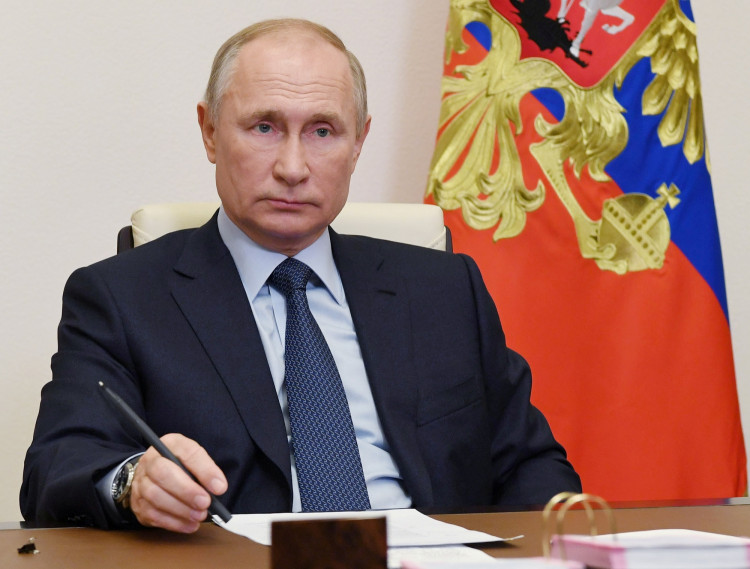In a move that has garnered international attention, Russia has initiated nationwide drills to practice evacuating civilians in the event of a nuclear conflict. This extensive exercise, as revealed by leaked documents from Baza, a Russian media outlet with ties to Vladimir Putin's security services, will see rescue workers tasked with evacuating "large numbers of people from hypothetical 'radiation zones'," as reported by The Telegraph.
While Russia has a history of conducting civil defense drills, the scale of this particular exercise is unprecedented. The scenario being tested assumes the nation is "at least partially under martial law" and envisions a situation where "up to 70 percent of the country's housing facilities have been destroyed." The Telegraph further noted that it remains "unclear how many civilians, if any, will be involved" in the drills.
This move by Russia has raised eyebrows, especially given the timing. Mikhail Kovalchuk, the head of the Kremlin-backed Kurchatov Institute and an individual purportedly close to Putin, has publicly advocated for Russia to "test an atomic bomb to intimidate the West," according to The Times. Drawing parallels with the Tsar Bomba test of 1961, Kovalchuk argued that such a display of power "forced the United States to negotiate with the Soviet Union and drop its 'aggressive' rhetoric."
Further fueling concerns, The New York Times reported on satellite imagery and aviation data suggesting that Russia might be gearing up to test an experimental nuclear-powered cruise missile, or may have recently done so. This missile boasts a theoretical range spanning thousands of miles. Between 2017 and 2019, Russia reportedly conducted at least 13 tests of this kind, all of which were unsuccessful. The implications of such tests are significant, as mishaps can have deadly consequences.
The overarching question remains: What is the true intent behind these drills and the accompanying rhetoric? Irina Tsukerman, a national security lawyer and geopolitical analyst, offered a perspective to the Daily Express US, suggesting that Putin's primary aim is not to prepare for a genuine nuclear attack. Instead, the goal might be to "terrorize the population and reassert false claims about NATO being an existential threat." Tsukerman further posited that these drills serve to justify Russia's "continuing and domestically destructive aggression" in Ukraine and to pave the way for long-term internal restrictions, such as martial law.
As the world watches closely, the unfolding events in Russia serve as a stark reminder of the delicate balance of global power and the ever-present shadow of nuclear capabilities. Whether these drills are a genuine preparation for potential conflict or a strategic move to consolidate internal power remains to be seen.





